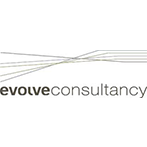BIM Level 2 and BIM Management
This comprehensive library of skills assessments will empower your organisation to capture helpful, relevant and accurate metrics, to better demonstrate individual and organisational BIM capability. The results data and gap analysis will also inform your training and hiring plans, so you can continuously improve your performance in this business-critical area.
Awareness of Stage 2 BIM (ISO19650)
The foundation-level knowledge required by everyone involved with BIM in your organisation. Understand the implications and value proposition of BIM. Modules include: General BIM Concepts, BIM Terminology, ISO19650, Standards and CIC BIM Protocol.
Implementation of Stage 2 BIM (ISO19650)
Understand the implications and value proposition of BIM within your organisation. Understand the requirement for the management and exchange of information between supply chain members and clients as described in the ISO19650 suite of standards. Modules include: Standards, National Annex, CDE, Processes, Responsibilities and BIM Awareness.
UK BIM Level 2 Theory
Understand what BIM is, the contextual requirement for BIM Level 2 and its connection to the Government Construction Strategy and Industrial Strategy 2025. Topics include: Roles and responsibilities of the supply chain, Barriers to successful adoption of BIM Stage 2, Organisational change management, Assessment of capability of your organisation, Potential security threats, the Common Data Environment (CDE), Issues of IP and copyright, Insurances and potential liabilities.
Practical BIM Fundamentals
This assessment looks at your knowledge of a range of general BIM management tasks, including: General BIM Principles, Implementation, Modelling, Information Exchange and Project Coordination.
BIM Authoring with AECOsim (Fundamentals)
This assessment for Information Originators looks at basic concepts of BIM authoring and knowledge of the DPSM (Digital Production Standards Manual), for firms using Bentley AECOsim. Topics include: Purpose, Documents, Coordinates, Parameters, Validation, Model Types, File Naming, Layer Naming and Drawing Coordination.
BIM Authoring with Revit (Fundamentals)
This assessment for Information Originators looks at basic concepts of BIM authoring and knowledge of the DPSM (Digital Production Standards Manual), for firms using Autodesk Revit. Topics include: Purpose, Documents, Coordinates, Parameters, Validation, Model Types, File Naming, Layer Naming and Drawing Coordination.
BIM Authoring with AECOsim (Advanced)
This assessment for Information Originators looks at more advanced concepts of BIM authoring and knowledge of the DPSM (Digital Production Standards Manual), for firms using Bentley AECOsim. Topics include: Project Setup, Compound Cells, Project Items, IFC Import, IFC Export, IFC Modelling, IFC Validation.
BIM Authoring with Revit (Advanced)
This assessment for Information Originators looks at more advanced concepts of BIM authoring and knowledge of the DPSM (Digital Production Standards Manual), for firms using Autodesk Revit. Topics include: Project Setup, System Family, IFC Import, IFC Export, IFC Modelling, IFC Validation.
BIM Software Management (AECOsim)
This assessment for Task Information Management (Reviewers) looks at basic concepts of BIM Software Management, for firms using Bentley AECOsim. Topics include: Uniclass1.4 / Uniclass 2015, Information Validation, Project Review.
BIM Software Management (Revit)
This assessment for Task Information Management (Reviewers) looks at basic concepts of BIM Software Management, for firms using Autodesk Revit. Topics include: Uniclass1.4 / Uniclass 2015, Information Validation, Project Review.
BIM Coordination (Revit)
This assessment for BIM Coordinators looks at basic concepts of BIM Software Coordination, for firms using Autodesk Revit. Topics include: Revit Configuration, Project Resources, Parameters, View Templates, Family Editor.
Project Process (Revit)
This assessment for BIM Coordinators and Managers looks at the impact of using Autodesk Revit in a Project environment. Topics include: Views, Families, Worksharing and Schedules. Sample data sets for the task based questions are based on Revit Architecture.
About the Authors

Evolve Consultancy
Evolve Consultancy help clients work more profitably by improving their use of design technology. Their client list and track record speaks for itself, providing pivotal BIM and CAD management, training and support services to many of the most prolific design and construction firms across the world. They have unique insight and first-hand understanding of cutting-edge design and construction data production and exchange practices. Evolve appreciates the need for reality-based solutions to aid the project design process.
Directors Nigel Davies and Daniel Heselwood regularly present to major conferences in the US and UK, are authors of the “Practical Modelling” series of books and feature in industry press, including the RIBA Journal. Evolve has been involved in the development of UK BIM processes as members of the PAS1192 steering committee, and as chair / authors of the AEC (UK) BIM documents.
Evolve’s website: www.evolve-consultancy.com

digitalgreen
digitalgreen are a digital construction consultancy focussing on property owner implementation of new work processes to meet the current industry expectations, realising the true return on investment for immediate needs and long term operational needs.
Casey Rutland is Founding Director of digitalgtreen.io, an experienced Architect and former Associate Director at Arup Associates. In the BIM arena, Casey specialises in client engagement, team management, multidisciplinary building design, delivery and up-skilling of teams.
Website: www.digitalgreen.io
